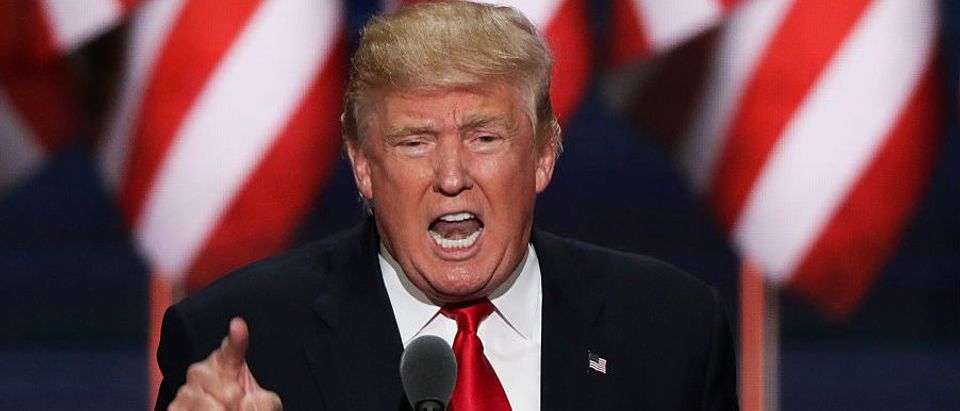Without the benefit of a clinical diagnosis, a psychiatry professor at Yale University has dismissed President Donald Trump as someone with “mental impairment.” Bandy Lee, who teaches at the university’s psychiatry department claims that Trump’s supposedly neurotic behavior has reached “such a critical level” that she is forced to “speak out” about the crisis, Campus Reform reports.
“In fact, a state of emergency exists and we could no longer hold back,” she told radio host Chauncey DeVega, suggesting that it is the “highest ethical principles” of psychiatry that make her honor-bound to act now.
“We have an obligation to because many lives and our survival may be at stake,” she explained as Lee praised her efforts to organize last April’s “Duty to Warn” conference for like-minded colleagues who also believe that Trump is half-mad. The title of the get-together is a reference to the legal right held by psychiatrists to reveal information about a client if a doctor observes violent tendencies.
Lee has consistently claimed that her pseudo-diagnosis of Trump — not from the vantage point of a psychiatrist’s office but as a private citizen — is an “ethical responsibility.” She claims the president has a “dangerous mental illness” and has come to that conclusion by simply reading and watching the news — and by talking to other psychiatrists who also hold that opinion.
“I’ve been thinking from the very beginning that he has a lot of signs of mental impairment, and that I think was revealed by the conference that I organized,” she said, suggesting that once she “broke the silence” on Trump’s alleged mental instability “an explosion” of messages from like-minded colleagues who were anxiously searching for a way to question Trump’s sanity “responsibility and ethically.”
But despite Lee’s obsession with psycho-analyzing the president, the American Psychiatric Association (APA) actually cautioned psychologists from doing that very thing. In an August 2016 newsletter on its website, as the presidential election campaign was in high gear, the APA suggested that it would be both “unethical” and “irresponsible” to impair the credibility of the psychiatric profession by rendering ad hoc assessments of political candidates.
“Every four years, the United States goes through a protracted elections process for the highest office in the land. This year, the election seems like anything but a normal contest, that has at times devolved into outright vitriol,” the posting reads. “The unique atmosphere of this year’s election cycle may lead some to want to psychoanalyze the candidates, but to do so would not only be unethical, it would be irresponsible.”


